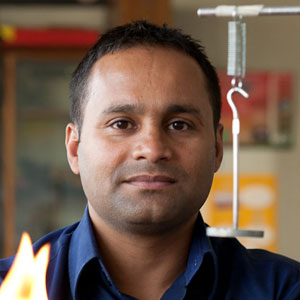Ethnographies of Doubt: Faith and Uncertainty in Contemporary Societies (I. B. Tauris) by (ed) Mathijs Pelkmans
Doubt is a somewhat slippery thing; it “tends to vanish with articulation” and to “disappear when analytically engaged”, writes Mathijs Pelkmans. In this sensitive, wide-ranging collection, he successfully unites ethnographies from writers who’ve managed to pin doubt down and study its dynamic. They find it in sites as diverse as the Danube Delta, Mongolian mines, Taiwanese shrines and post-industrial Hungary. And together they illuminate the many ways in which doubt descends, is transformed and is acted upon, exploring also its interplay with conviction.
Introducing the volume, Pelkmans portrays doubt as a rather fidgety, febrile force. Doubt is, he says, “always on the move” (we can’t easily imagine people “resting in their doubt”), and has a “propensity to be resolved in diametrically opposed directions”, leaning towards either belief or disbelief. And, whilst in disciplines such as theology and philosophy, Pelkmans notes, doubt has been considered a device for reaching certainty, or an obstacle to faith, here he posits that doubt and belief should be seen as “co-constitutive parts”, and that “instead of being the opposite of belief, doubt is often implicated in it”.
Throughout the book, we see how doubt can be tough to ignore and tricky to interpret. In Giulia Liberatore’s study of newly practising Somali Muslims in London, we meet Maryam, whose lifestyle has changed since she began “‘practising’ Islam more seriously” in recent years. Grappling with thoughts on the nature of “paradise”, she admits, “I’m freaked out paradise will have restrictions ... I know I shouldn’t be saying this but I’ve given up so much stuff here and I just want to make sure it’s all worth something.” This uncertainty is understandably troubling for Maryam, but gradually we see her come to reinterpret her doubts through the more “acceptable idiom” of fluctuating or “low iman” (low faith). A fluctuating “iman”, she learns, is part of faith, manageable through practice and worship.
Elsewhere we see how “solutions” to doubt can lie in interpreting and acting on doubtful situations in ways that make them more livable and permit space for belief. In his chapter on Taiwanese spirit-medium shrines, Friedrich Binder discusses the ways in which clients and mediums deploy various devices and shifts in expectation to render a doubt-filled situation more meaningful, beneficial and authentic. And though his example may feel far removed from the lives of some readers, perhaps there are cases with which we might draw parallels. How many of us have had a friend read our palm, or peeked at our horoscope and wanted – or needed – to believe, perceive or shoehorn significance into the interpretation offered? Instead of framing his subjects as mere dupes or fools, Binder grants them agency and critical capacity, and rightly so.
Many chapters remind us that doubt is by no means confined to the confession booth or private realm alone, in terms of both its causes and consequences. Chapters from Mette M. High (on belief in spirits amidst Mongolian gold mining), Vlad Naumescu (on a waning community of “Old Believers”), Eszter Bartha (on “illusion and doubt” in post-industrial Hungary) and Alpa Shah (on Maoist revolutionary India), for example, remind us how social and political upheavals can generate intimately felt doubt. But we also learn that doubt by no means follows predictable pathways of generation and resolution. High, for example, finds that whilst in Mongolia “the search for gold has given rise to grave concerns about the cosmological implications of current human desires”, people nonetheless “simultaneously insist on the perpetuity of spirits”.
Though many of this book’s studies feel remote from life in the UK (how often do you go gold mining in Mongolia or consult a Taiwanese spirit-medium?), a great part of their impact lies in how they prompt us to ponder our own waverings and cocksure certainties, not to mention those of the rather precarious belief systems within which we exist. We may live in an age of conviction politicians and frowned-upon “u-turns”, where we’re pushed to express “likes” and “dislikes” at every turn, but delve a little deeper and doubt is – obviously – all around.
As Pelkmans observes, our globalised world is, of course, one in which “nationalisms, populisms and fundamentalisms” are hardly on the wane. Rather than take them as rock-solid, we should, he says, “examine the dynamics of conviction and doubt through which their efficacy and affective qualities are made and unmade.” Tough as doubt may be to capture, it may indeed need increasingly to be placed centre stage. This collection succeeds in doing just that, upholding doubt as a rightful subject, rather than mere means, of inquiry and reflection.

